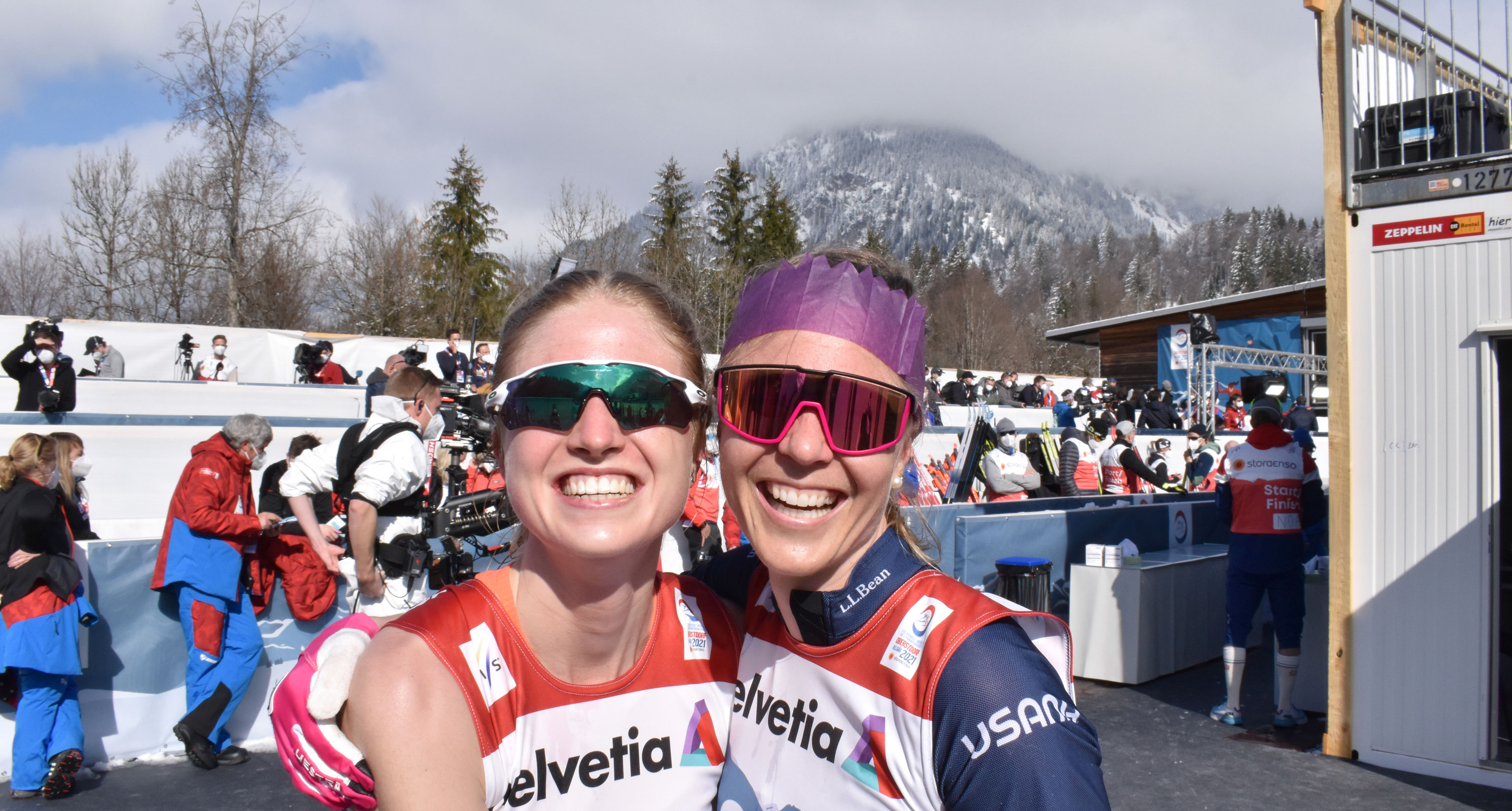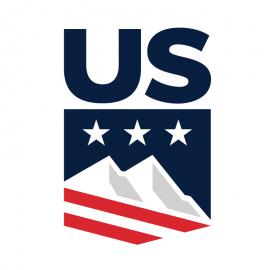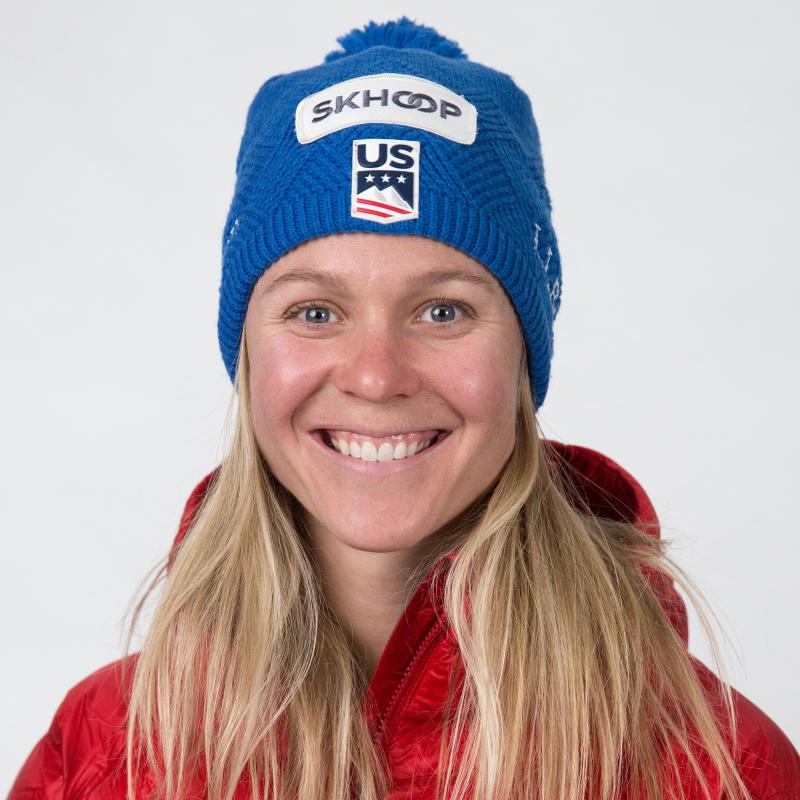Maubet Bjornsen Finds Perspective Amidst Retirement From Racing

Sadie Maubet Bjornsen has retired from ski racing, but she is not hanging up her skis. She is simply moving on to new challenges and opportunities in life and to spend more time with her husband Jo, her family, friends, and to enjoy the simple pleasure of gliding across the snow on cross country skis.
We sat down with Maubet Bjornsen at the 2021 FIS Nordic Ski World Championships in Oberstdorf, Germany, to discuss her remarkable career - 12 World Cup Podiums, a World Championships classic team sprint bronze medal she won in 2017 with Jessie Diggins, and two Olympic Winter Games appearances - her approach to her final season, and a look back at the highs and lows of a 10-year professional ski racing career.
USSS: When did you start thinking about retirement?
SMB: Last year, I was thinking about moving on, but we had the season cut so quickly, and I had a new wax technician last year that was providing me with opportunities I had never had before, in addition to a few goals left unaccomplished. I just had this feeling I wasn’t ready to walk away yet, even if I was starting to play with the idea. I look back now, knowing I made the right decision to spend another year ski racing, but am also equally excited to start my next career. (after completing her accounting degree earlier in her ski career, she started working in the public accounting world this summer, and has since started working towards her CPA certification).
USSS: You took a new approach to the season this year, spending time at home training before joining the team in late January. What did you learn from that approach?
SMB: In my two extra months at home before entering into the World Cup season, I developed a new relationship with skiing. Spending hours skiing through the woods alone, I fell in love with the sport itself again. It wasn’t just about racing, it was about being outside on the snow, a feeling that brought me back to what got me into the sport in the first place. To find those feelings again at the end of your career is a gift. I am lucky I get to walk away just as in love with skiing as I was at five years old.
USSS: After a couple of World Cup races in Sweden, you and the team enjoyed a two-week pre-World Championships training camp, was there any pressure to use the camp to get into top form for Worlds?
SMB: The Davos prep camp before World Champs was a great example of the balanced feelings that came from my new approach. In the past, these prep camps have been so stressful for me. I have always felt like I needed to do the perfect thing to be in perfect shape to find my perfect result. With the first signs of imperfection, like the fact that I can’t ever sleep in Davos, I lost my happiness and confidence. But this year, for the first time in many years, I released the internal pressure and took the opportunity to look around a bit. In these times of open eyes, I realized just how incredible the experience is to spend my days trying to be the best ski racer I can be. As I skied on the trails I have skied a million times before, I saw them as adventures, rather than a workout to check off the list. I think life works this way. It isn’t until you have something to give you the perspective that you realize just how lucky you are!
USSS: Many athletes talk about leaving a legacy, or something along those lines when they retire. What impression do you want to leave on the next generation?
SMB: More than a legacy, I have always valued leaving a symbol or a memorable lesson. I want to be remembered as a symbol of imperfection that found the way. I don’t believe that there is one path to success, I believe there are many. I think my road was visually rocky, visually different, and visually persistent. When many people imagined there was no way, I always found a way. I hope my story is remembered not for the results that I accomplished, but for the path that I took to get there!
USSS: When you look back on your career, what will you remember most?
SMB: If you asked me this last year, I think I would have told you a result. But, the things that have become most meaningful to me have shifted, therefore the things that will be most memorable have shifted. Working with a group of people that are all invested in each other, and who want to accomplish equally enormous achievements is a gift and a connection I will remember forever. It is something that felt normal before I stepped into a new world of work this summer, but it is a feeling of comradery that goes above and beyond your standard teamwork. I think I will also remember that amazing connection in sport that makes you feel like someone is always looking out for you. If you have a tough day on the track, or you seem slightly off at training; there is always a coach, a teammate, or your sports psychologist that is there willing to work through the underlying issue. Despite the fact that I have been in an individual sport for the past 15 years, I will remember that that road was anything but individual.
USSS: You competed in more than 100 World Cup races, six World Championships, and two Olympic Winter Games, what event, or events, will you remember most?
SMB: I’ll remember my first Olympics the most because I had no pressure and I just took everything in. It was a dream even bigger than I could have imagined, only comparable to arriving in Disney World for three weeks straight, where everything is free. While my second Olympics had a bit more pressure and not the same lighthearted memories, there is one I will remember with equal importance to my first Olympics. The night before the event I was focused on the most, I sat down with my coach in a fit of nerves and stress. He forced me to take a second to step outside my head and look in to feel the magnitude of how incredible it was to believe I could win a medal the next day. Whether I win that medal or not was to be determined, but he forced me to feel the strength of the moment, and how rare people on this earth get to feel that feeling to their core. I didn’t end up winning that medal the following day, but the memory the night before of taming my nerves and dreams is lasting!
USSS: What was the most challenging part of your career?
SMB: During the 2018 Olympics, I was runner up for the team sprint team that went on to win an Olympic gold medal. The moments before, during, and after that race were extremely hard for me. In my mind, I believed I deserved to be on that team, and I had done everything to prove it. But, of course, decisions were made that I accepted. I stood on the sidelines that day screaming my face off, supporting the two girls that got to represent us all. In those tough moments of processing the experience, it felt like the nearest miss of my life.
USSS: Which led to one of your fondest memories?
SMB: I got pretty beat down by (not making the sprint team at the Olympics), and we had three weeks of World Cup racing following the completion of the Olympics. In the final World Cup of the season, I dug myself out of the deepest pit I knew at the time and achieved my most meaningful podium of my career. I knew what I had been through, and I knew just how hard I had to fight to find my belief again. On top of that, my husband was standing on the sidelines, sharing this most prized achievement with me. In so many ways, this felt like the rollercoaster of events that had painted my path in sport. From lows to highs, and back again. Through all these setbacks, moments of adversity, and loss of confidence, I always found my way. While many of these setbacks on my path have felt like my Achilles heel, they are in fact my greatest strength. The bumps and jumps have made me who I am. In that winter of extreme highs and lows of 2018, I finished the season ranked 6th overall in the World Cup. An achievement that will only be told by my toughest and fondest memories.
USSS: What is something you won’t miss about being a professional athlete?
SMB: I will miss being away from home the least. That is something that has become harder and harder every year. It is challenging asking everybody to patiently wait for you. As you grow older, there are people that become more important in your life. When you’re young, those people feel disposable. As you grow older, you know those people are your lifeline, so you feel the magnitude of leaving them behind.
USSS: Jo must have quite a bit of patience?
SMB: Patience is the best way I can describe Jo…independent and patient! When we talk on the phone, we rarely talk about skiing, and I love that. It is really, really helpful to me. In many ways, I feel lucky that many topics come first before the subject of my race comes up.
USSS: What changes have you seen in the sport?
SMB: I am so thankful for programs within the U.S. right now. When I came out of high school, I was coming from an incredible development program in the Methow Valley of Washington but needed to find my next step. I saw the success of Kikkan (Randall) and some other girls, but I didn’t see all these opportunities I see now. I am so thankful that I landed upon APU (Alaska Pacific University) who was creating a system for athletes to make the step between high school and professional racing. This is a challenging time, because you have no money, and sports cost money. I was lucky to have APU support that step, one that in many ways feels incredibly scary to commit to when you have everything to lose! APU gave me access to an education, a program, a community and a team that wanted to train super hard. I walked into APU extremely injured but developed a program of success with the guidance of Erik Flora. In many ways, he could and should have laughed at me when I told him on day one that my goal was to make the World Championships team, but he was willing to find the path.
USSS: What motivated you all these years?
SMB: A lot of my setbacks have been from injuries. I realized this past summer…I’m not motivated solely by winning. Winning is incredible, but it isn’t the only thing that keeps me coming back. In those few moments I have gotten to stand on that podium, I always get this flash picture of my toughest times. One particular memory always jumps out. A few summers ago, I fell while rollerskiing and broke my hand. I was able to continue training but had to wear a cast on my hand. Three weeks into my recovery, I was rollerskiing down a hill, only to find a moose standing in the path at the bottom. I dove off the side of the road since we have no brakes on our rollerskis, in an attempt to avoid the moose. As I fell down, I ended up landing on my cast, bending all my fingers backward around the cast. The moose walked away unscathed, I walked away looking like Edward Scissors Hands. A hand cast, and two finger braces to protect my newly broken fingers. These images and moments are of course challenging, but they provide me with the fuel to fight back.
USSS: What next?
SMB: Lots! Like my athletic career, I have already set some new goals in my next career. I am currently working on my Certified Public Accounting certification. It is a four-part exam, of which I passed the first one just before heading over for my season of racing. I look forward to spending more time in the amazing communities that have developed me, and welcomed me with open arms. Both the Methow and Anchorage have given me so much, so I look forward to giving a little back. I am lucky I left my professional career with the same love and appreciation for skiing, so I know I will remain part of the skiing community. Being outside at least once a day is my form of morning coffee, so I hope to share that passion with the people around me. Just like the past ten years, I have no true idea of where I am going, but I look forward to giving it my best every day!

